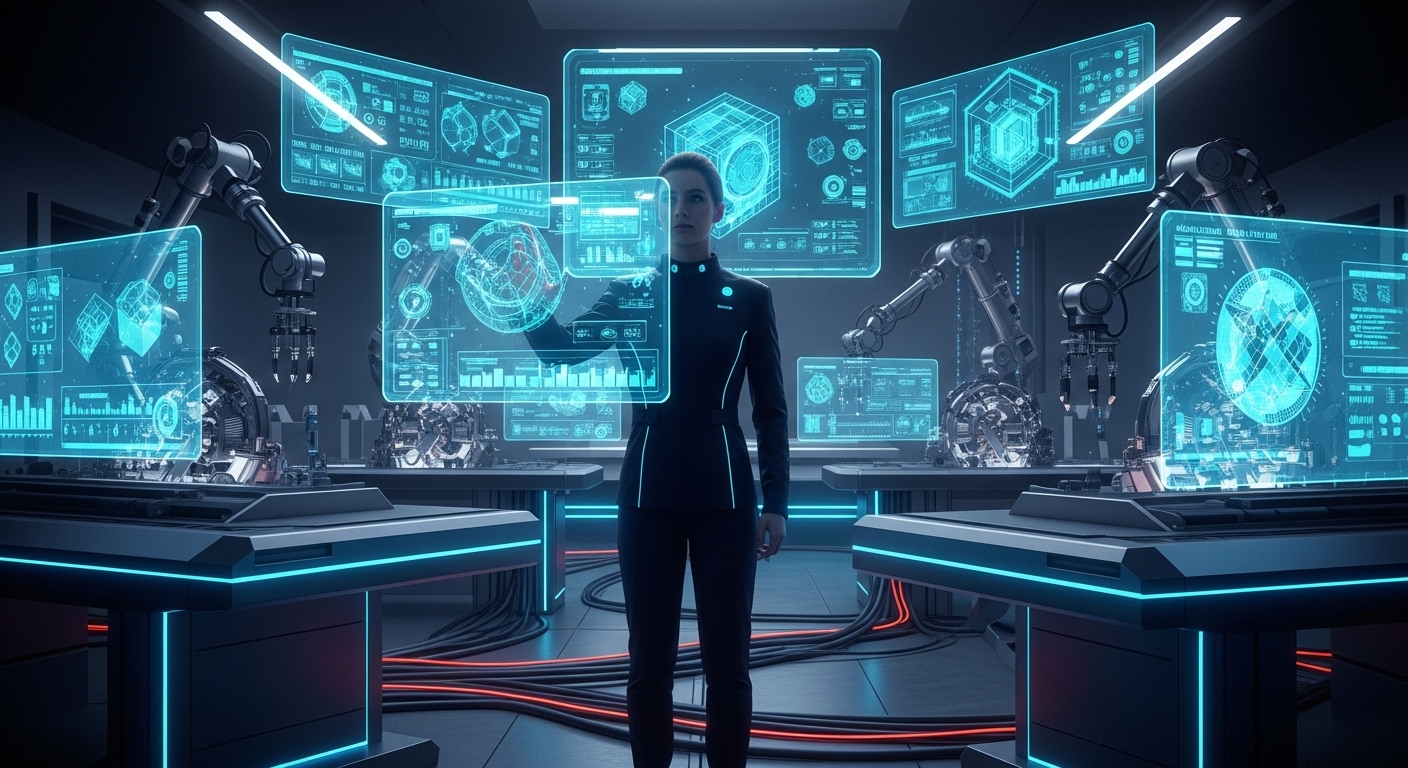Introduction: A Glimpse Into the Future of Technology
The world of technology is in constant flux, and the pace of change has never been faster. From artificial intelligence to quantum computing, the innovations emerging today are shaping how we will live, work, and interact tomorrow. As we look to the future, technology promises to enhance every aspect of human life—from making cities smarter to solving complex global challenges. In this blog post, we’ll explore some of the key technologies transforming the world and what their impact could mean for our future.
Artificial Intelligence: The Brain of Tomorrow’s Tech
Artificial intelligence (AI) has moved from a futuristic concept to an integral part of our daily lives. AI systems are already enhancing everything from customer service and healthcare to autonomous vehicles and personalized marketing. The future of AI looks even more promising, with advances in machine learning enabling computers to not only mimic human decision-making but to improve over time. AI-powered tools can process vast amounts of data quickly, offering insights that were once impossible to uncover. However, as AI continues to evolve, it also raises important ethical and societal questions that need careful consideration.
Quantum Computing: The Next Frontier in Processing Power
Quantum computing is another technological frontier that could redefine the possibilities of computing. Unlike classical computers, which process data in binary form (0s and 1s), quantum computers use quantum bits, or qubits, which can represent and process multiple possibilities simultaneously. This breakthrough could lead to advances in fields like cryptography, drug discovery, and climate modeling. While quantum computing is still in its early stages, it has the potential to revolutionize industries by solving problems that would take today’s supercomputers thousands of years to compute. As quantum technology progresses, we may see unprecedented advances in science and engineering.
The Rise of 5G: Revolutionizing Connectivity
The rollout of 5G networks is one of the most anticipated tech advancements of the decade. With its ultra-fast speeds and low latency, 5G is set to enable a new era of connectivity that will unlock the potential of the Internet of Things (IoT), autonomous vehicles, and real-time data streaming. The speed and capacity of 5G networks will allow everything from smart cities to remote surgeries to become a reality. This next-generation wireless technology promises to connect billions of devices seamlessly, driving innovations in industries ranging from healthcare to entertainment and manufacturing. As 5G networks become more widespread, the impact will be felt across the globe.
Blockchain Technology: Securing the Digital Future
Blockchain technology, most commonly associated with cryptocurrencies like Bitcoin, has far-reaching implications beyond finance. At its core, blockchain is a decentralized, distributed ledger system that ensures transparency and security without the need for a central authority. This makes it an ideal solution for applications that require secure data management, such as supply chain tracking, digital identity verification, and voting systems. Blockchain’s ability to create immutable records could revolutionize how businesses and governments manage data. As industries explore its potential, blockchain could help build a more transparent and secure digital economy.
The Power of Augmented and Virtual Reality
Augmented reality (AR) and virtual reality (VR) are rapidly transforming how we experience digital content. AR overlays digital information onto the real world, while VR immerses users in fully virtual environments. Both technologies are enhancing various industries, from gaming and entertainment to healthcare and education. For instance, AR is already being used in retail to provide virtual try-ons and in education to offer interactive learning experiences. VR, on the other hand, is revolutionizing training simulations, offering realistic environments for everything from military exercises to medical procedures. As these technologies mature, the potential for more immersive and interactive experiences will be limitless.
Sustainability in Tech: Green Innovations for a Better Tomorrow
As the world faces mounting environmental challenges, technology is playing a critical role in developing sustainable solutions. Renewable energy technologies, such as solar and wind power, have become more efficient and affordable, helping to reduce our dependence on fossil fuels. Similarly, advancements in energy storage and smart grid systems are enabling cleaner, more reliable energy distribution. The tech industry is also focusing on reducing its environmental footprint, with companies embracing green manufacturing processes, improving the energy efficiency of data centers, and developing more sustainable hardware. Innovations like electric vehicles and eco-friendly packaging are also part of the broader push for sustainability in tech, proving that technology can be both advanced and environmentally responsible.
The Future of Work: Automation and the Gig Economy
Technology is reshaping the future of work, from automation in factories to remote working tools in offices. Automation is streamlining processes and increasing productivity in industries like manufacturing, logistics, and retail. AI-powered robots are taking on repetitive tasks, allowing human workers to focus on more creative and complex work. At the same time, the gig economy, fueled by digital platforms like Uber and Fiverr, is changing the way people approach work. The rise of flexible, freelance, and remote job opportunities has given workers more autonomy and control over their careers. As automation and remote work continue to grow, the way we think about jobs and careers will evolve, requiring workers to develop new skills for the tech-driven future.
Cybersecurity: Safeguarding Our Digital Lives
As technology becomes more integrated into our daily lives, the need for robust cybersecurity has never been greater. With cyberattacks growing in sophistication, individuals, businesses, and governments must invest in stronger defenses to protect sensitive information. The future of cybersecurity will likely see more advanced tools, including AI and machine learning, to detect and respond to threats in real-time. Additionally, with the rise of IoT devices, securing interconnected systems will become increasingly important. Blockchain technology could also play a significant role in enhancing cybersecurity by creating more secure and transparent systems for managing data. As our digital footprint expands, cybersecurity will remain a top priority for tech innovation.
Conclusion: Embracing the Future of Technology
The future of technology is brimming with possibilities, and the innovations on the horizon will continue to transform every facet of our lives. From quantum computing and AI to 5G and blockchain, technology is shaping the future in ways that were once unimaginable. While these advancements promise great benefits, they also come with challenges, including ethical considerations, privacy concerns, and the need for skilled workers. As we move into this new tech-driven era, it’s essential to embrace innovation while staying mindful of its potential impacts. The future is bright, and technology will continue to be the key to unlocking new possibilities for a better tomorrow.



